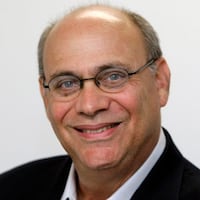How much slack were the officials supervising prison doctors at Georgia Regents University willing to cut Dr. Yvon Nazaire because he kept medical costs low?
Enough to decide that when he refused to pay for more than $300 in personal calls he made on his university-issued cell phone in 2013, he wouldn't be required to make reimbursement, according to emails recently obtained by The Atlanta Journal-Constitution.
“Do you agree we just keep this paper trail in case we’re audited, but let the matter drop?” wrote Chanda Crisp, then-director of contracts and fiscal services for Georgia Correctional Health Care, the branch of the school -- now known as Augusta University -- that provides physicians and other medical personnel for the state’s public prisons. "I don’t want this small amount to result in the loss of a valuable employee.”
Both Robert Bradford, then Georgia Correctional Health Care’s managing director, and Dr. Billy Nichols, the statewide medical director, gave their OK, although Nichols wasn’t doing handsprings over it.
“I agree but I’m not happy that this had not already been resolved,” Nichols wrote.
The officials’ willingness to look the other way meant they were on board with the doctor's violating the university’s cell phone policy. While this wasn't a life-or-death matter, it's another indication of how far they were willing to go as long as he clamped down on inmate healthcare expenses.
Nazaire was removed from his position as medical director at Pulaski State Prison in July after a series of stories in the AJC raised questions about his background and the deaths of women in his care at Pulaski as well as Emanuel Women's Facility.
He later was fired after it was confirmed that he had misrepresented his work history on his state employment application, a matter that is now the subject of a criminal probe by the Georgia Bureau of Investigation.
Emails from Nichols’ university account, provided to the AJC in response to an open records request, make little mention of Nazaire’s competence. However, there's much discussion of his use of his university cell phone. In fact, the emails show, a debate raged internally for years over what should be done about the doctor’s propensity for making personal calls on the phone and refusing to pay.
Apparently, many of the charges were for calls to New Jersey. Although Nazaire served as the medical director at Pulaski for nine years, he never established residency in Georgia, staying at the Hawkinsville Budget Inn while on duty and commuting to his home in New Jersey on weekends.
“As per our previous conversation, the state cell phone you were issued is for work-related issues,” Nichols wrote Nazaire in December 2012. Noting that Nazaire had used an excess of 1,500 minutes the previous month, Nichols ordered him to return the phone.
But Nazaire still had it six months later and was still making personal calls, prompting more back and forth on the issue.
“Dr. Nichols, looks to me like we’ll have to take this physician’s cell phone away if he won’t pay for personal calls and clearly won’t operate within policy …? I don’t know what other options there are. Please advise,” Crisp wrote in September 2013.
Nichols’ response: “Take the phone!”
Finally, the emails show, Nazaire did give up his phone but still wouldn’t reimburse the university the $325 he owed for personal calls. That led to another discussion involving Crisp, Nichols and Bradford in March 2014. The consensus was Nazaire, then receiving an annual salary of $174,300, should be quietly given a pass.
The full exchange:
Crisp: “I think we should keep all our documentation on file, but not pursue it (any) further. Dr. Nazaire is evidently not going to reimburse us for this easily. I think we’ve done everything we can do … short of this escalating into termination somehow.
“We did obtain the phone from him and I suppose he’s footing the bill for any after-hours calls himself now. As I understand it, he’s a very good physician for GCHC. If so, he has the capability to save us big money frequently.
“Do you agree we just keep this paper trail in case we’re audited, but let the matter drop? I don’t want this small amount to result in the loss of a valuable employee.”
Bradford: “I’m inclined to concur with Chanda. What do you think?”
Nichols: “I agree but I’m not happy that this had not already been resolved.”
Credit: Lois Norder
Credit: Lois Norder
Crisp: “Yeah, I don’t know how we can make him pay other than making a bigger deal of this and garnering (sic) from his paycheck. But we did get it stopped so the issue is receding.”
In response to questions from the AJC, university spokeswoman Christen Carter wrote in an email: “As you can see from the emails, this was a decision made by Mr. Bob Bradford at the request of Ms. Crisp -- both of whom are no longer employed by GCHC. This decision was not made in accordance with the university’s policy on acceptable use of information technology.”
Bradford, who left Georgia Correctional Health Care in March to become vice president of operations for a Nashville company that manages prison health care, did not respond to phone and email messages from the AJC.
Click here to read the AJC's latest story on Nazaire's tenure in Georgia and how officials failed to heed warnings that women were suffering and dying needlessly in his care.
Credit: Lois Norder
Credit: Lois Norder
About the Author
The Latest
Featured




